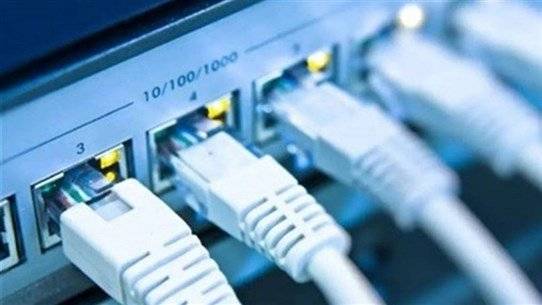The Office of the Minister of Communications in the caretaker government, Jony Qaram, issued the following statement: In response to what was written by Dr. Fouad Zmkhal, President of the International Federation of Lebanese Businessmen, under the title "Goodbye to the Private Telecom and Internet Sector, and Welcome to State Monopoly," which contains several inaccuracies based on incorrect data, we express our welcome for the continued provision of internet service through a partnership between the public and private sectors, and goodbye to the private sector monopoly on the internet market in Lebanon at the expense of state resources and citizen interests.
Firstly: The current decree and the tariffs were established based on the costs incurred in providing and ensuring internet service ("procuring international bandwidth and distributing it locally, and operating local networks to provide the service"). These costs have been allocated to both the public and private sectors while preserving a fair, reasonable, and balanced profit margin after a previous imbalance, where the relationship between the two sectors was unjust to the public sector, and previous tariffs favored private companies at the expense of the Lebanese state. Therefore, it is natural to adjust the profit margin percentage in order to restore financial and economic balance in the relationship between the Lebanese state and private sector companies, achieving a genuine partnership between the two sectors.
The current decree relied on two factors in calculating costs: the first is a scientific and clear standard resulting from an analysis of the consumption of subscribers of the Ministry of Communications, who represent the largest share of subscribers "on traditional networks." The second factor is the efficiency in resource use aimed at producing a more effective service at lower costs, considering the operating and maintenance costs incurred by the Ministry to deliver services. The decree does not eliminate the interests of private companies but aims to reconcile the objectives of three aspects: the living conditions of citizens under the current economic and financial circumstances, maintaining the interests of private companies after considering some proposals they presented during meetings that align with the core principles behind preparing the decree, and working to ensure sufficient revenues to cover the direct and indirect costs incurred by the Ministry of Communications for operating the sector. It should be noted that financial texts (tariffs - fees - taxes on services, etc.) are related to public order, and their interpretation favors the public treasury; thus, it is not justifiable to argue about the decline in profits for private companies in the face of a higher interest of the state, which is the interest of the public treasury, an issue that will indirectly affect citizens’ interests later.
Secondly: Regarding the claim that the state decided to take control of all investments and networks carried out by the private sector, the current decree has organized investments in fiber-optic networks and set an application mechanism and the fees to be adopted, which were not subject to the applicable rules and laws. It is known that the relevant and currently effective laws and implementing decrees clearly specify that the ownership of wired networks, including fiber optics, belongs to the Ministry of Communications. The current decree reaffirms this, while investments remain as they were before, allowing equal access for all qualifying companies to invest until the implementing decrees of Law 431/2002 are issued. The decree has removed impractical incentives for entering into investments by providing accessible and feasible factors for all interested companies. It should be noted that Law 431/2002 has not been applicable to date, making the current decree a step toward encouraging its implementation after completing the associated procedures and appointments.
Thirdly: Contrary to what was said about "Where is the competition," the equal regulation of this entire sector is a first step toward introducing homogeneous competition that prevents monopoly, giving citizens options among all related internet market products at reasonable competitive prices, starting with the products and prices offered by the ministry in this decree.
Fourthly: The illegal internet sector has become highly advanced, an unacceptable legal and factual reality, as this sector completely controls the distribution of its products and widely dominates the related internet market. Therefore, addressing this anomalous situation is highly sensitive and urgent, and postponing its resolution will plunge the country into further instability and waste, leading to the state failing to fulfill its commitments, especially the implementation of the reform program towards citizens. It is inconceivable for any company to call for delaying the resolution of illegal conditions and their exclusion to maintain existing illegal and factual situations if it is not benefiting from these circumstances and is a partner in them at the cost of the public treasury and the interests of citizens.




